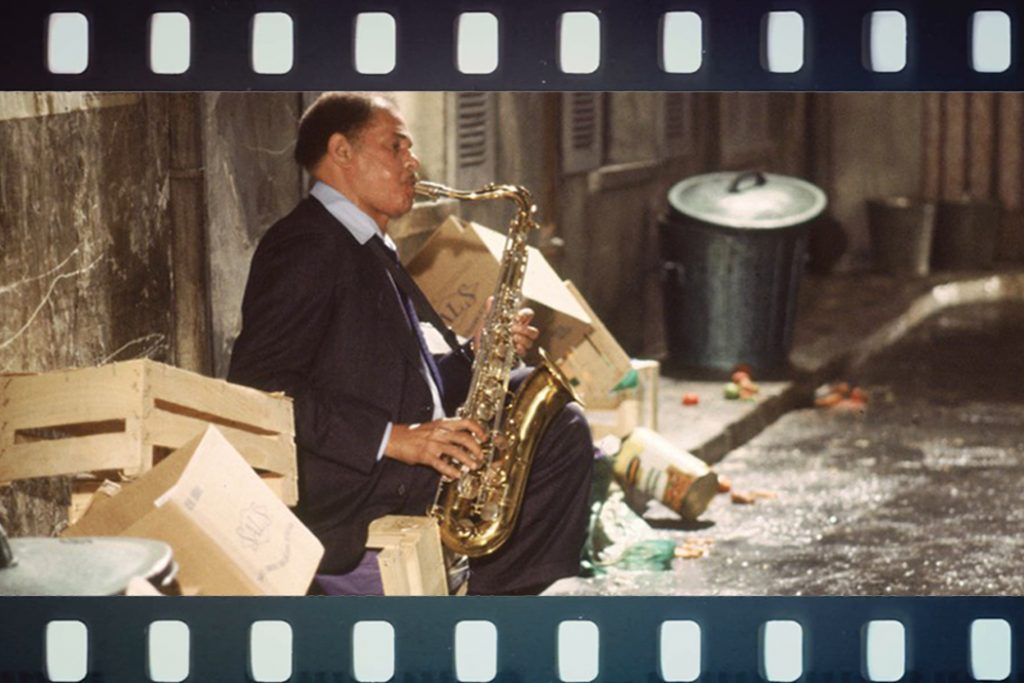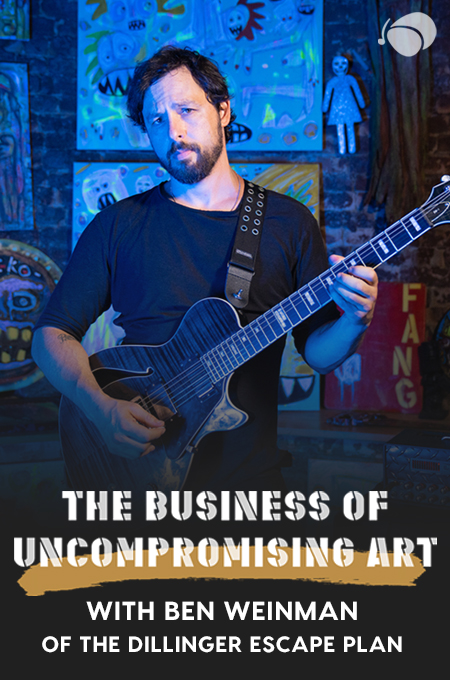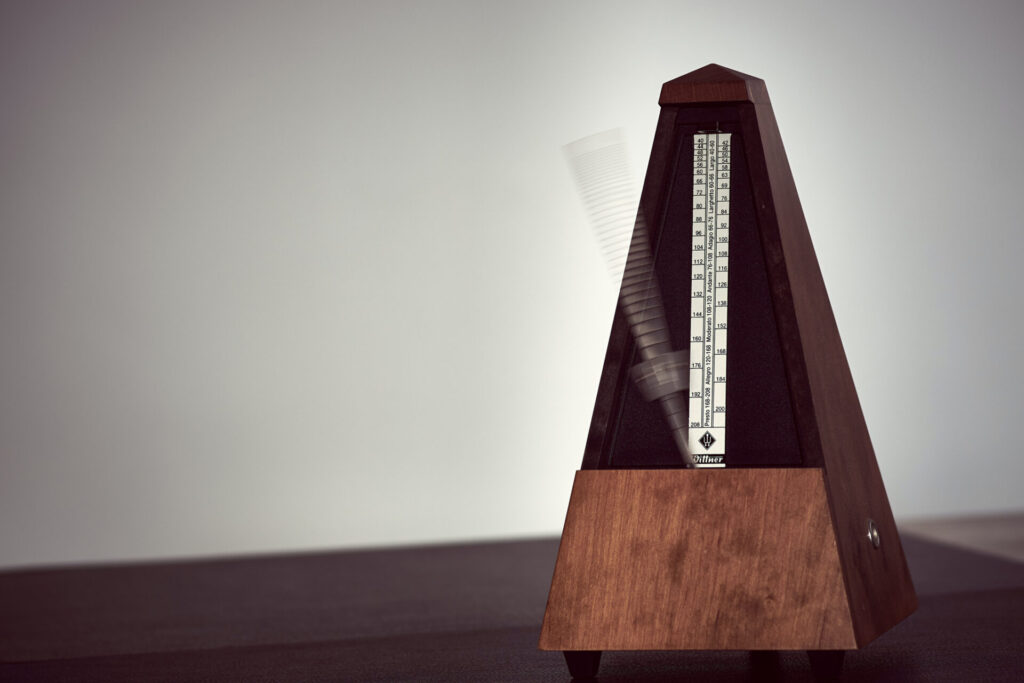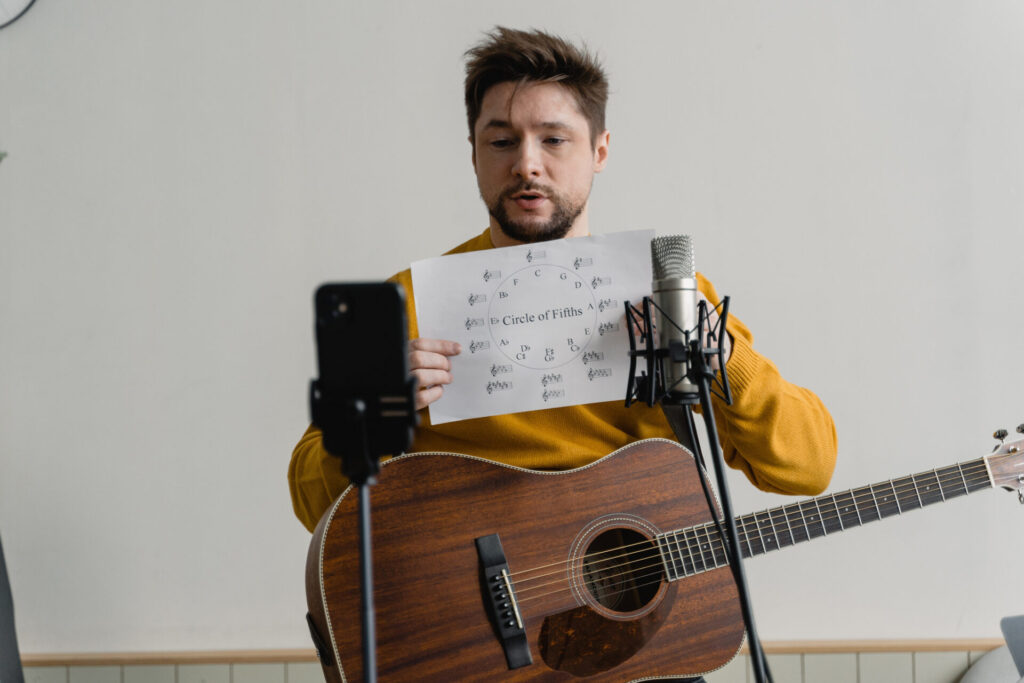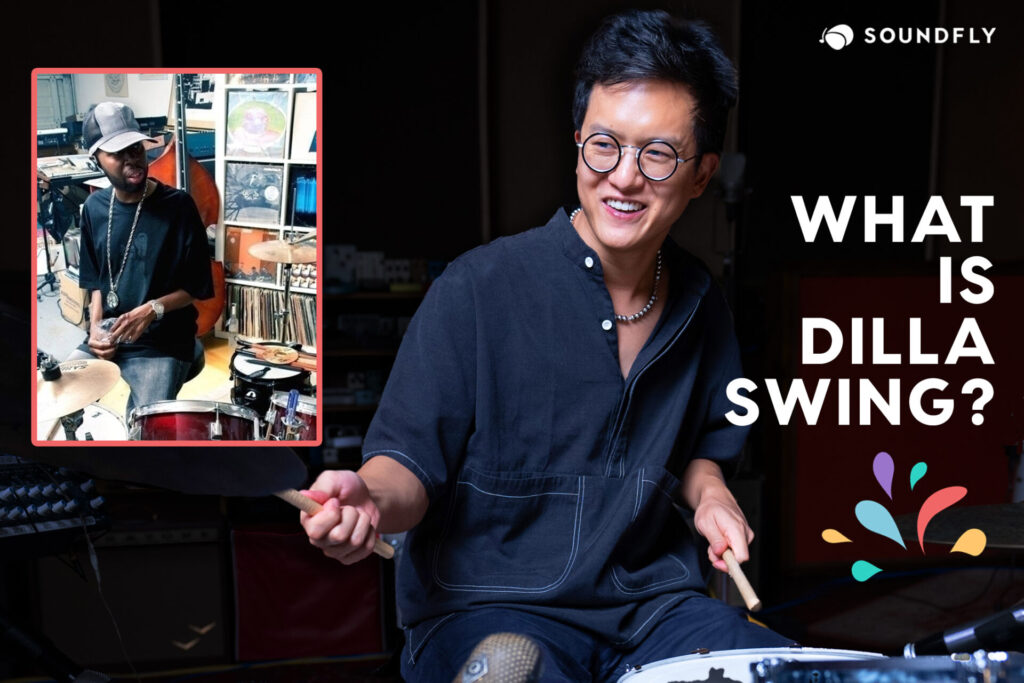+ Take your modern jazz piano and hip-hop beat making to new heights with Soundfly’s new course, Elijah Fox: Impressionist Piano & Production!
Horns are a prominent piece in the puzzle of modern music. When it comes to pushing the language of American music forward, predominantly via jazz in the 20th century, their role has been invaluable.
But what about their prominence in film? Whether it’s the saxophone, trumpet, or trombone, or, yes, even a bunch of tubas, film has offered a spotlit stage to showcase the players who have wielded these brass swords as their weapon of choice.
Here, you’ll find a handful of our favorite selections of films that detail the varied and complicate stories related to or about horn players. And this ain’t just some simple run down of documentaries, no — horn players are celebrated as a means of historic understanding and as worthy, entertaining protagonists. Concert films, captivating storylines, and even films with weird time-traveling plot devices are taking up the slots for this well-deserving list of films dedicated to the horn.
By the way, if you’re interested to learn more about how to harness the intersections between jazz, improvisation, and modern music like hip-hop in your own music, you’re going to love Soundfly’s newest course with jazz pianist and beat producer, Kiefer: Keys, Chords, & Beats.
1. Chasing Trane (2016)
John Coltrane’s journey with the saxophone is a roller coaster. The entirety of his creative output was a vessel for his quest for expression. His music became a guide for him. To become one with his saxophone was to really become divine enough to understand his importance in life, and he dedicated nearly every waking moment to not only discovering that answer within himself, but to helping others find that answer for themselves.
Denzel Washington narrates this documentary, speaking words that Coltrane either spoke or wrote throughout his lifetime. (Washington also stars as a horn player in Spike Lee’s Mo’ Better Blues below.) Interview snippets are spliced together from a myriad of celebrities, musicians, loved ones, and fans alike, all attesting to Coltrane’s legacy and immense influence. Plenty of musical selections of his are placed to give context to just why his sound has completely transformed the expectation of what jazz could be, where the saxophone could take it, and who is able to achieve it.
If you’re looking to learn more about Mr. Coltrane, enjoy reliving his accolades and harmonic achievements, or you just love an entertaining historical documentary, this one’s for you. No frills, no filler — just pure ‘Trane.
2. Round Midnight (1986)
Bertrand Tavernier’s Round Midnight is an extremely high-caliber film and presents itself, truly, as an entertaining piece of art, no matter how deeply you have steeped yourself within the jazz culture. Its ability to fuse a very real slice of American history with a gripping fictional story helped make it a success that brought in viewers both aware and unfamiliar with the story’s backdrop.
Dexter Gordon, who starred in the film playing a fictional character based on the lives and careers of Bud Powell and Lester Young, had a prolific and celebrated career in his own right¹. Gordon also lived the American-musician-in-Europe life himself. In his early years, he was right at the source of the magic, being on the NYC scene as early as the 1940s with characters like Charlie Parker, Ben Webster, and Benny Carter, horn players who also helped lay down the foundation for bebop and jazz at large. Joining Gordon in this film are musicians from many different periods of jazz history who have shone their light through the lens of jazz at one point or another, including Bobby Hutcherson, Freddie Hubbard, John McLaughlin, Tony Williams, and the film’s composer, Herbie Hancock.
Black Americans, who had pioneered the music and cultural influence of jazz, had a very difficult time dealing with post-World War II racism in America, and would increasingly travel to Europe to live and work for long periods. There, it was understood that audiences had a higher level of respect for black American artists of all kinds, like author James Baldwin and Gordon’s character in the movie, Dale Turner. It was also a way to remove themselves from environments that caused them harm, due to an increase in illegal drug use. Unfortunately, these travel plans, which usually helped to ease the lives of the individual, didn’t necessarily have the same effect on the families or friends they left behind. All of these elements are touched upon with detail and focus in this movie.
Filmed only about four years before Gordon’s untimely death, it was a moment in time where entertainment was eager to shine a light on the life of jazz and its significance on American culture and the world at large. The success of this film lead to many more jazz-influenced films being created in the late ’80s, such as the Charlie Parker biopic, Bird; the Chet Baker documentary, Let’s Get Lost; and Spike Lee’s drama, Mo’ Better Blues (all of which are mentioned below).
While en route to attend the debut of the film at the Venice Film Festival in 1986, Gordon met one of Soundfly‘s student musicians at the Malpensa Airport and wrote an impromptu bebop chart in his notebook called “Milano.” So we decided to invite our favorite improvisers in the world, like Elliott Sharp, Mats Gustafsson, and Simon Hanes to record their interpretations of this piece! Check out the never-before-heard “Milano” here.
3. Miles Ahead (2016)
Miles Ahead is a special movie that does exactly what you expect it to — and then some! Don Cheadle, who portrays Miles Davis in this film, takes a very personal approach to this film and its main subject; it is very apparent how invested he became in the process of becoming the “Prince of Darkness.” But while he did put a lot of work into getting to know Davis inside and out, trumpet playing was one thing he couldn’t actually master. Keyon Harrold takes over for all of the trumpet sounds you hear that are not coming from Mr. Davis himself.
The movie walks a fine line between biopic and fiction. As it bounces around different periods of Davis’ life and career, it also weaves in a somewhat fictional story of Davis tracking down a recording of recent compositions. I purposely say somewhat because elements of this search do ring true to his actual life, like his interactions (and frustrations) with the record label giant of the time, Columbia. Many familiar quotes and tidbits of information are laced throughout the dialogue, specifically when it is being delivered straight from Davis’ mouth. From the studio sessions to club performances to his triumphs and failings in life, the movie can become a plethora of information to the unfamiliar, but also, possibly, a weird action film version of his story rife with ’70s charm to those who have peeked through a biography or two.
Okay, so all of the film’s events may not be 100% accurate, but that’s never what this film set out to do. It attempts to present Davis as a hero of sorts, which history sometimes, cruelly, does not do, and portrays him as relatable in the modern day, with some interesting surprises I can assuredly say nobody would expect (#socialmusic). Whether you dig it or not is another story, but either way, props to Don Cheadle for acting, directing, and writing a work that brings Miles Davis into the present-day vernacular of entertainment.
4. Jivin’ in Be-Bop (1946)
Jivin’ in Be-Bop is the kind of film I wish we had more of, both in general and specifically for this list. It’s basically a collection of performances led by trumpeter and vocal extraordinaire Dizzy Gillespie. Put together during the heart of the inception of bebop, it’s a film that shows off big-band performances, vocal acrobatics, and a flurry of dance routines, all of which you’ll be able to enjoy in any mood.
Seriously, there’s not much else to this film. It’s a straight-forward take on performance and the cultural promise jazz makes during its earlier stages. This film comes from a time when jazz was a part of the United States’ popular music conscious, pushing culture to its bleeding edge with improvisation and imagination.
5. Joe Lovano Interviews Wayne Shorter (2013)
Every once in a while, horn players put down their instruments… to talk. It’s a brave and unorthodox direction to take, but I’m a fan. Wayne Shorter and Joe Lovano, two very successful and revered saxophonists, sat down and had quite the conversation. From composition, to musical interactions while performing, the storied history of jazz, and so much more, it’s such a treat to hear these two go back and forth for an hour about anything and every single thing.
These talks are actually from a collection of interviews pieced together, presented by JazzTimes, but there’s no reason you can’t view this like it’s a first-person documentary. Lovano mostly assumes the role of interviewer to scour the reserve of Shorter’s stories and lessons, but he gives bits of his experience whenever he can. Informative, intimate, and raw, you’re hearing the thoughts that ring inside a horn player’s mind straight from the source, unfiltered by a microphone, record label, or instrument.
You can also catch Shorter give a brief, impeccable Miles Davis impression. Believe me, it’s worth it.
Very Honorable Mentions
There are so many more films worth mentioning — we’d be here all day if we did, though! It’s really encouraging to know how significant of an impact horn players, and jazz at large, have had on movies, and how much has been dedicated to their presence. Here are some honorable mentions.
6. Bird (1988)
Bird is Clint Eastwood’s classic biopic on the incredible work and tumultuous life of Charlie Parker, featuring Forest Whitaker playing the starring role.
7. Let’s Get Lost (1988)
Let’s Get Lost is a raw, truthful documentary film shot by Bruce Weber that traces the career and life episodes of Chet Baker, presenting the old him in stark contrast with the new — not to be confused with the Robert Budreau biopic starring Ethan Hawke, Born to Be Blue, from 2015.
8. Mo’ Better Blues (1990)
Spike Lee’s fiction drama features Denzel Washington, Wesley Snipes, and (unsurprisingly) Lee himself. It features the music of Branford Marsalis.
Horns have even popped up on network television. Dizzy Gillespie guest-starred on The Cosby Show and The Muppets, and Branford Marsalis on The Fresh Prince of Bel-Air, twice!
Trumpeter Christian Scott has appeared as a performer in the 2008 movie Leatherheads, and even contributed the actual playing that Mickey R pantomimed to in 2010’s Passion Play. Miles Davis actually composed the score for the 1958 Louis Malle film, Ascenseur pour l’échafaud, on the spot, watching the movie while striking up a song with a French rhythm section.
Play Your Heart Out!
Continue your learning adventure on Soundfly with modern, creative courses on songwriting, mixing, production, composing, synths, beats, and more by artists like Kiefer, Kimbra, Com Truise, Jlin, Ryan Lott, RJD2, and our newly launched Elijah Fox: Impressionist Piano & Production.
